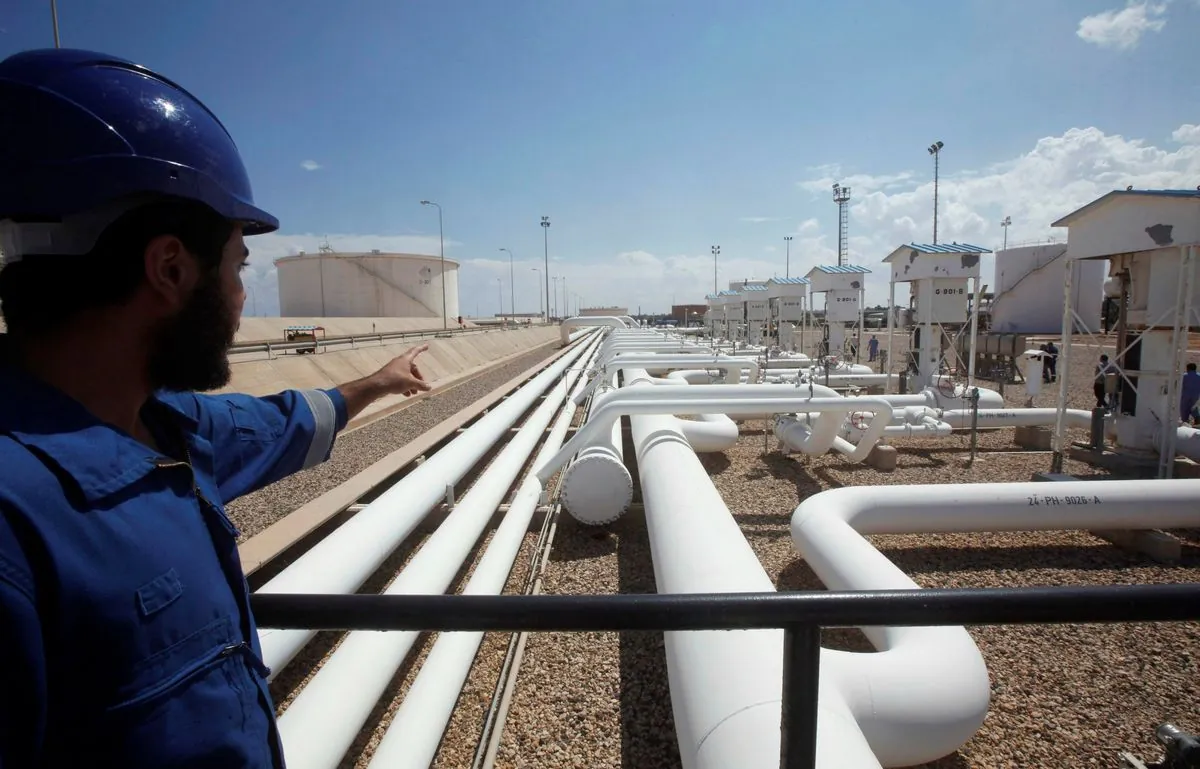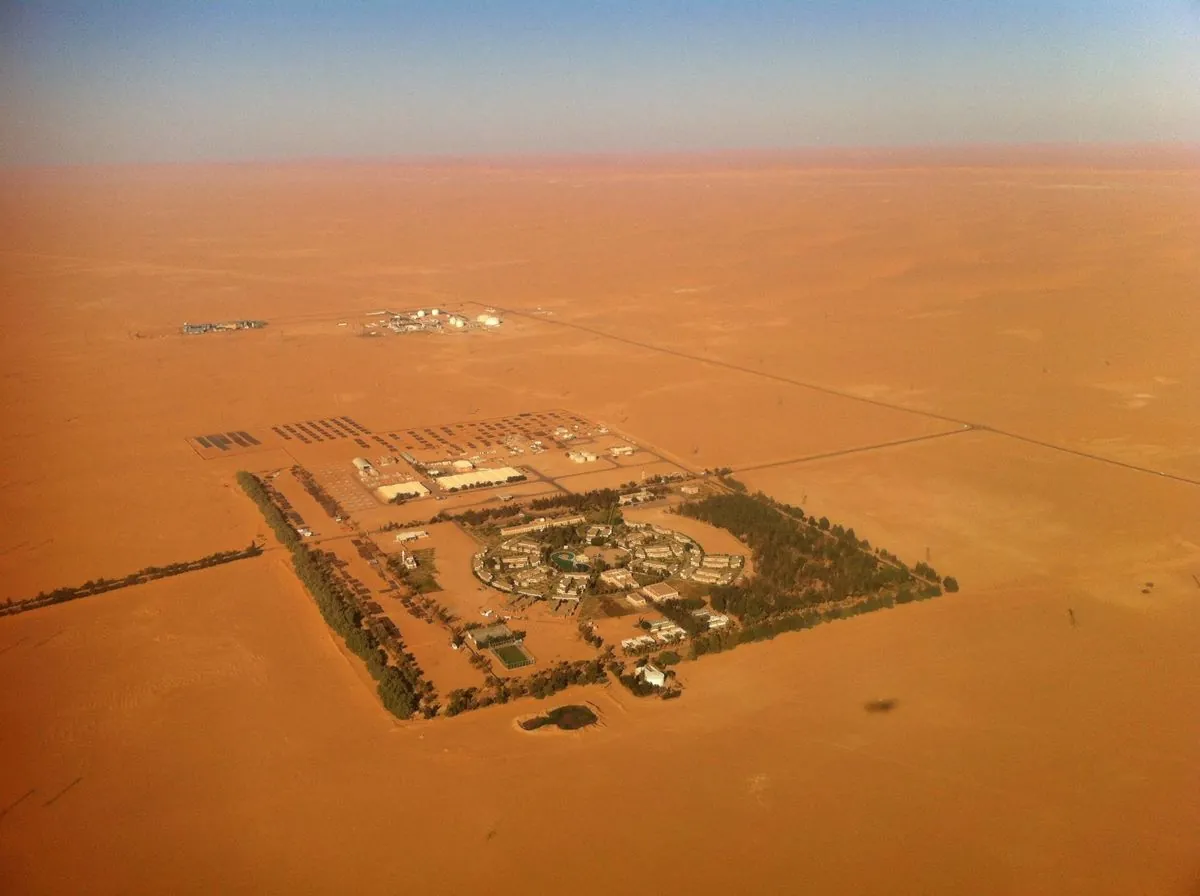Libya Resumes Full Oil Production After Two-Month Hiatus
Libya's National Oil Corporation restarts operations at major oil fields and port after security assessment. The move ends a two-month suspension amid ongoing political tensions in the country.

Libya's National Oil Corporation (NOC) has announced the resumption of full oil production, ending a two-month suspension at two of its major fields. The decision comes after a formal security assessment confirmed safe operating conditions at the Sharara and El-Feel oil fields, as well as the Es Sider export terminal.
The NOC had previously invoked "force majeure" in August 2024, a legal provision allowing contract suspension due to extraordinary circumstances. This move had significantly impacted Libya's oil output, which typically exceeds 1.2 million barrels per day.
Sharara, Libya's largest oil field with a capacity of up to 300,000 barrels daily, is among the facilities resuming operations. Discovered in 1980, Sharara is a crucial asset in Libya's oil industry, which accounts for approximately 60% of the country's GDP.

Libya's oil sector has faced numerous challenges since the 2011 uprising that ousted long-time leader Moammar Gadhafi. The country, possessing Africa's largest proven oil reserves estimated at 48 billion barrels, has struggled with political instability affecting its oil production.
The recent shutdown was initially attributed to the Fezzan Movement, a local protest group. However, reports suggest it may have been linked to a dispute involving military commander Khalifa Hifter and a Spanish company partially operating the Sharara field.
Libya's oil industry, entirely nationalized, has been a cornerstone of its economy since the first discoveries in 1959. The country joined OPEC in 1962 and has been a member of the Organization of Arab Petroleum Exporting Countries since 1968. At its peak in the 1960s, Libya produced 3 million barrels of oil per day.
The Es Sider oil terminal, Libya's largest with a capacity of 447,000 barrels per day, is also set to resume export operations. This development is crucial for Libya's oil exports, which primarily serve European markets.
Libya's recent political crisis extended beyond the oil sector, involving a dispute over the governance of its Central Bank. However, the appointment of a new bank governor has somewhat eased tensions.
The country's oil wealth is managed by the Libyan Investment Authority, established in 2006. Despite ongoing challenges, Libya's oil remains highly valued for its quality and low sulfur content.
As Libya works to stabilize its oil production, the industry continues to employ about 65,000 people across its five domestic refineries and 12 major oil fields. The country's territorial waters in the Mediterranean are also believed to hold significant offshore oil reserves, presenting potential for future exploration and development.
"As part of continuing review of the force majeure situation, we have recently received a formal security assessment concerning Sharara, El-Feel and Essider, which confirms that NOC can resume the operations of crude oil production and exporting operations to its customers."
The resumption of full oil production marks a significant step for Libya's economy. However, the country's path to stability remains complex, with rival administrations in the east and west backed by various militias and foreign governments.


































